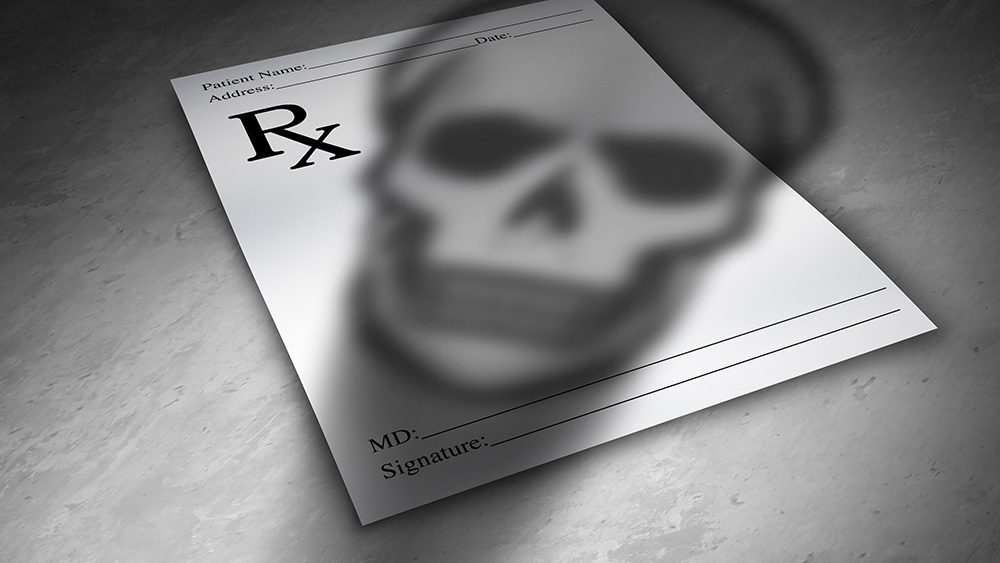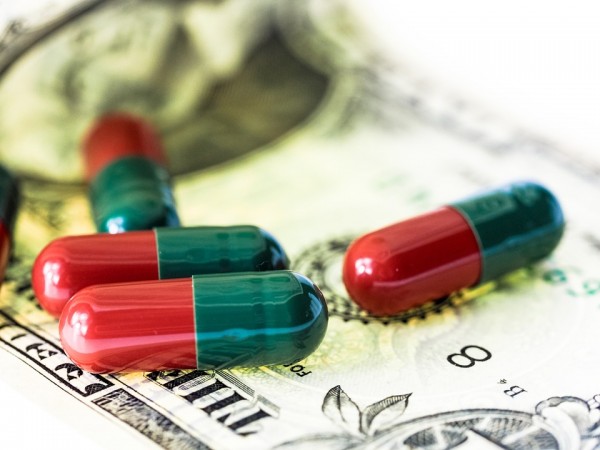Finally getting it: British government launches urgent review as research shows 1 in 11 are prescribed addictive meds
07/15/2018 / By Zoey Sky

Thanks to the Daily Mail‘s efforts, the U.K. government has launched an urgent review into the growing crisis of prescription drug addiction. According to data, at least one out of 11 patients are prescribed “potentially addictive drugs” like sedatives, tranquilizers, and painkillers. The rates have gone up by a whopping 50 percent since 2000.
Patients encounter problems when they receive drugs post-op and they keep taking them even after months or years. Although the drugs come from healthcare professionals, patients often get addicted to the drugs “through no fault of their own.”
With help from U.K. charities and Members of Parliament (MPs), the Mail rallied for about a whole year before the Government acknowledged the addiction crisis. Steve Brine, public health minister, conceded that prescription drug addiction was turning into a “big issue.” He added that he wants to address the issue before it escalates into a “huge problem” that other countries like the U.S. struggle with. (Related: Is addiction a risk of going to the hospital? New model of care suggests offering hospital patients addiction services, regardless of why they are there to “close the gap in treatment.)
Brine’s review will also delve into antidepressants, which one in 10 Brits rely on. Although antidepressants aren’t addictive, they are linked to “crippling withdrawal effects.”
Brine authorized Public Health England (PHE) to investigate why there were a lot of patients who were prescribed “potentially addictive drugs” in 2017. The PHE will also determine ways to monitor drug use. Officials will release a detailed document in the following weeks, and review findings are slated for release early in 2019.
Two of the groups that aided the Mail‘s efforts, the All Party Parliamentary Group for Prescribed Drug Dependence, and the British Medical Association (BMA), are also lobbying for a 24-hour helpline. The helpline could help address addiction in the U.K. since patients don’t have “specific support” once they start depending on prescription drugs.
This is ironic since a lot of resources are allocated to providing support for people abusing illegal drugs. Meanwhile, patients hooked on prescription drugs have no choice but to seek help from addiction services meant for heroin and cocaine addicts, making the former feel that they are viewed as users of illegal drugs.
Data also revealed that the prescriptions given for potentially addictive drugs has gone up by three percent in the last five years, with 8.9 percent given the drugs in 2017. Additionally, 7.6 percent of adults in the U.K. take prescription-only painkillers that are not prescribed to them.
Rosanna O’Connor, from the PHE, warns that it is alarming to see a lot of individuals who depend on or are going through withdrawal symptoms from prescription drugs. These people are faced with various obstacles, and O’Connor believes that it is important to look into the reach of this problem, its negative side effects, the best ways to prevent them from happening in the first place, and how to provide help to those who need it.
Dr. Andrew Green, from the BMA, adds that the group believes the review can help curb drug addiction, which often negatively affects the lives of affected patients.
The U.K. is listed as “the fourth-most medicalized population in the Western world” when it comes to the use of antidepressants. Women are twice as likely to be taking them compared to men.
Overall prescriptions in the country have doubled in the last 10 years. While experts believe this is due to individuals who seek proper help, this is also caused by “a crisis” in the National Health Service’s (NHS) mental health services. Because of the long waiting lists for counseling, patients opt for pills to manage their conditions.
Professor Wendy Burn, from the Royal College of Psychiatrists, concluded, “Addiction is a serious mental illness and the rising number of deaths by opioids make this review timely.”
Learn more about the dangers of prescription medication at DangerousMedicine.com.
Sources include:
Tagged Under: addiction, addictive drugs, Antidepressants, Big Pharma, British Medical Association, drugs, medication, Medicine, Opioids, over-the-counter drugs, painkillers, pills, prescription, Public Health England, sedatives, tranquilizers


















